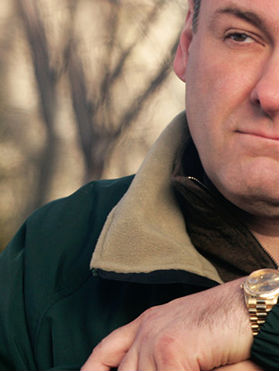Did David Chase explain the ending of The Sopranos?
A few weeks ago, addressing the ending of his epochal show, The Sopranos, David Chase quoted America’s bestselling shaman of the 1970’s, Carlos Castaneda: “Warriors don’t venture into the unknown out of greed. Greed works only in the world of ordinary affairs. To venture into that terrifying loneliness of the unknown, one must have something greater than greed: love.” On the internet, most thought he must have been kidding. The Sopranos, after all, teems with wiseassery. But those present at the talk tended to say he was serious. In the New Republic, Marc Tracy wrote that “Chase seemed to be in earnest about this ridiculous passage.”
Having seen the “Kennedy and Heidi” episode of The Sopranos, in which Tony goes on a revelatory peyote trip, it hardly seems surprising that Chase would quote Castaneda earnestly. Hollywood, world capital of credulity, has long been receptive to the gurus’ work. In the early 90’s, the city was the chosen base of operations for Cleargreen, the company Castaneda founded to promote, “Tensegrity,” a spiritual program derived from “Toltec traditions.” It was run out of the offices of Castaneda’s agent, Tracy Kramer, a producer on the show Rugrats. The two had been introduced by Bruce Wagner, whom some consider the city’s best novelist since Thomas Mann left the Palisades. The term that most associate with Castaneda is “countercultural,” but in the heart of the culture industry, it never really applied.
Still, can quoting Carlos Castaneda to shed light on the fate of a New Jersey mafia family rightly be labeled “earnest”? The use of the quote is richly ironic to the point of paradox, it seems to me, like the show itself. Later in the same interview, Chase said:
“Maybe the most important shot in the [finale] is Tony looking at the sun at the end, toward the end. He’s leaning on the rake. That to me is the key to the whole concept. And that ties back to the ducks and the bear and life on the planet and him taking peyote and seeing the sun come up. And it’s not all negative at all.”
Chase's Castaneda quotation expresses the peyote-optimism of this scene and the habitual darkness of the series. It corrects the common reading of The Sopranos as simply a dramatization of American decline. This air of decline is just the environment in which Chase has built a more personal, and in the context of Hollywood, more radical critique. For Chase, that terrifying, lonely unknown, which one needs love to brave, isn’t only death. It describes Tony’s life. The hero of The Sopranos can go out into the world "as a warrior," because he is widely loved by his community, and intensely loved by his family.
Yet he isn’t deeply loved. Tony receives what Saul Bellow once called “potato love.” Bellow meant a love at once warm and automatic. It is for the parts of a person that aren’t particular, from the people who must love him. This love isn’t fake, only unspecific. Tony may as well be a potato, a “warrior”, or for that matter a murderer, because the love he gets has no relation to what he does. This genre of love is the basis of the irony driving the show. In The Sopranos the united nuclear family is no mere happy ending; it’s a doleful beginning. The same nourishing closeness that fosters Tony's sense of peace—his leaning contentedly on a rake and staring at the sun from the midst of a morbid life—from the start, has sponsored his brutality.
